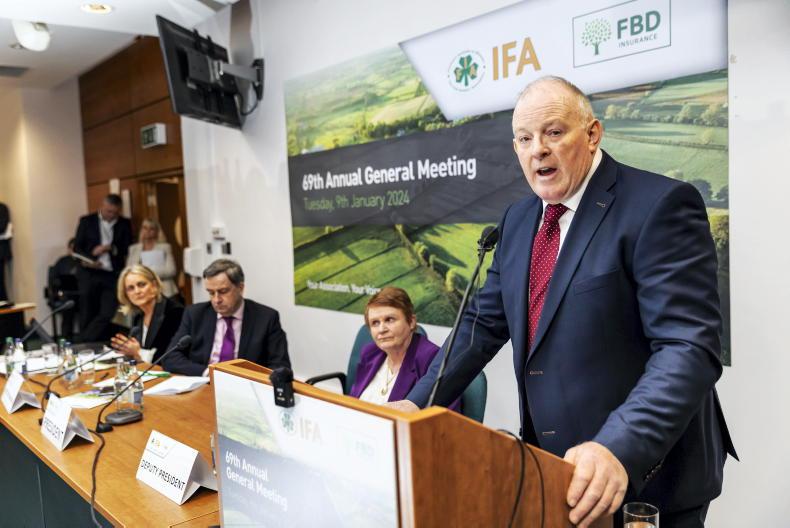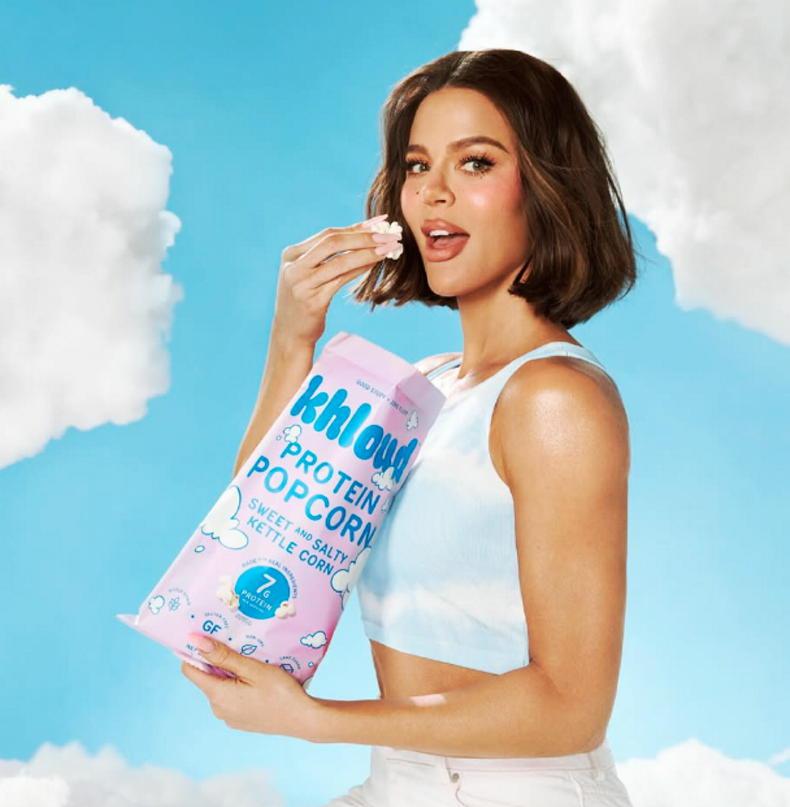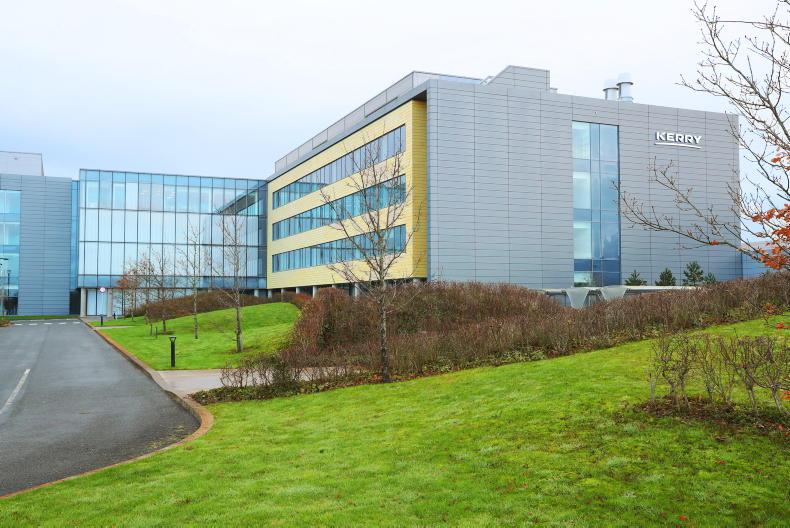This year we saw several news stories relating to public listed companies which have a significant farmers shareholder base. Irish Farmers Journal analysis shows that the more farmers – and farm organisations – hold of a company, the less trading happens in that company’s shares.
The three we looked at were Kerry Group Plc, Glanbia Plc and FBD Holdings Plc.
While an exact number for the farmer shareholding is not available, we know from recent comments from CEOs, equity analyst comments and company announcements that the farmer breakdown of Kerry group amounts to approximately 25% (a significant portion of this will soon change hands from Kerry Co-op to a direct holding by Kerry Co-op members, but this will not change the overall percentage).
For Glanbia, there is the 29% shareholding controlled by Tirlán – again due to change soon as a portion of that shareholding is spun out in 2025 – with approximately a further 15% remaining in farmer hands from previous spinouts conducted by Tirlán. There is also a likely a further residue of Glanbia shares held by farmers listings of both Waterford Co-op and Avonmore Co-op.
Taken together, this means that Glanbia most likely remains majority-owned by Irish farming interests.
Concentrated shareholder base
The third company, FBD Holdings Plc has a very concentrated shareholder base in the farming sector.
The company’s most recent annual report showed that 24% of its shares were owned by Farmer Business Developments while earlier this year the Irish Farmers Journal revealed that the FBD Trust had increased its shareholding in the insurer to almost 14%, meaning those two holders have around 38% of the shares between them. FBD Plc also retains a significant number of farmer shareholders, some of whom have held their stake since the founding of the company in the 1960s.
While the number of shares held by these farmers is not clear – the most recent available register for the company is more than five years old - a conservative estimate would put them at more than 10% of the outstanding shares.
FBD also has a significant shareholder in Sretaw, the investment company founded by water tycoon Eamon Waters which is chaired by former FBD CEO Fiona Muldoon.
For any listed companies, the number of shares which can trade on the stock exchange are called the ‘free float’. For companies which have shareholders who tend not to trade their shares much, or at all, that free float can in practice be significantly lower than it might appear.
Looking at actual trading data from the Irish stock exchange, we can see how many shares trade each day and then calculate what percentage of each company’s shares trade each day, and then from that get an idea of how much actual liquidity there is in a company’s shares.
If there are a lot of shareholders who are unwilling to sell (or buy) then there will be less liquidity and if more shareholders are willing to buy and sell shares, then there will be greater liquidity.
In Figure 1 we can see that, on average, in 2024 0.22% of the outstanding shares in Kerry Group changed hands each day.
This level is about on par with the trading frequency of Bank of Ireland. Looking at Glanbia, we can see that around 0.15% of its shares traded each day and for FBD that number is 0.05%. In other words, only 1 in every 2,000 FBD shares changed hands each day.
To put this data another way, at the pace seen during 2024, it would take less than two years for every share in Kerry Group to change hands, it would take three years for every shares in Glanbia to changes hands and eight years for every shares in FBD to change hands.
There certainly seems to be a fairly strong correlation between the number of shares in a company held by farmers and the daily liquidity in that company’s shares on the stock market.
Why liquidity matters
Liquidity for shares is important as it means there is an established market for a company’s shares. This means that a seller can easily find a buyer and a buyer can easily find a seller. In companies which are traded less often, there can be greater challenges in finding willing buyers, or finding buyers who will buy at the current market price.
To use a farming analogy, a farmer would be much less likely to go to a small mart where they knew there’d only be one or two buyers than they would be to go to one where there were many buyers.
A well traded company will be able to find buyers in the market for new shares, and should be better positioned to avoid huge share price drops during difficult trading conditions.
It might seem like an advantage for a company to have a large number of committed shareholders who have little interest in trading their shares – preferring instead to hold for the very long term and get their dividend cheque in the post every six months.
But it can cause difficulties for those companies if too few of their shares are traded as it can lead to their stock becoming illiquid and therefore badly positioned to either raise funds from the markets or successfully trade through difficult times.
More importantly for the shareholders, having their financial assets held in a single long-term holding might seem like the easiest thing to do, but it can come with considerable risks.
Being tied to a single company means that the value of a portfolio is entirely tied to the performance of that company. If the shares are illiquid then shareholders may not see as much value creation as they would in a more liquid company which performs well.
Equally, if the company’s share price comes under pressure, there may be significantly fewer buyers in the market to slow any fall.
For farmers who have valuable holdings in a single company then the best ways to avoid risks to their portfolio is to diversify their holdings by owning shares in several companies, or otherfinancial assets, rather than keep all their eggs in any single basket.
Loyalty is not something any shareholder has been paid for.
In short
Farmer shareholders tend to keep their shares.Companies with a lot of farm owners see less share trading.Liquidity in markets is very important.There is less risk in holding a diversified portfolio of shares.
This year we saw several news stories relating to public listed companies which have a significant farmers shareholder base. Irish Farmers Journal analysis shows that the more farmers – and farm organisations – hold of a company, the less trading happens in that company’s shares.
The three we looked at were Kerry Group Plc, Glanbia Plc and FBD Holdings Plc.
While an exact number for the farmer shareholding is not available, we know from recent comments from CEOs, equity analyst comments and company announcements that the farmer breakdown of Kerry group amounts to approximately 25% (a significant portion of this will soon change hands from Kerry Co-op to a direct holding by Kerry Co-op members, but this will not change the overall percentage).
For Glanbia, there is the 29% shareholding controlled by Tirlán – again due to change soon as a portion of that shareholding is spun out in 2025 – with approximately a further 15% remaining in farmer hands from previous spinouts conducted by Tirlán. There is also a likely a further residue of Glanbia shares held by farmers listings of both Waterford Co-op and Avonmore Co-op.
Taken together, this means that Glanbia most likely remains majority-owned by Irish farming interests.
Concentrated shareholder base
The third company, FBD Holdings Plc has a very concentrated shareholder base in the farming sector.
The company’s most recent annual report showed that 24% of its shares were owned by Farmer Business Developments while earlier this year the Irish Farmers Journal revealed that the FBD Trust had increased its shareholding in the insurer to almost 14%, meaning those two holders have around 38% of the shares between them. FBD Plc also retains a significant number of farmer shareholders, some of whom have held their stake since the founding of the company in the 1960s.
While the number of shares held by these farmers is not clear – the most recent available register for the company is more than five years old - a conservative estimate would put them at more than 10% of the outstanding shares.
FBD also has a significant shareholder in Sretaw, the investment company founded by water tycoon Eamon Waters which is chaired by former FBD CEO Fiona Muldoon.
For any listed companies, the number of shares which can trade on the stock exchange are called the ‘free float’. For companies which have shareholders who tend not to trade their shares much, or at all, that free float can in practice be significantly lower than it might appear.
Looking at actual trading data from the Irish stock exchange, we can see how many shares trade each day and then calculate what percentage of each company’s shares trade each day, and then from that get an idea of how much actual liquidity there is in a company’s shares.
If there are a lot of shareholders who are unwilling to sell (or buy) then there will be less liquidity and if more shareholders are willing to buy and sell shares, then there will be greater liquidity.
In Figure 1 we can see that, on average, in 2024 0.22% of the outstanding shares in Kerry Group changed hands each day.
This level is about on par with the trading frequency of Bank of Ireland. Looking at Glanbia, we can see that around 0.15% of its shares traded each day and for FBD that number is 0.05%. In other words, only 1 in every 2,000 FBD shares changed hands each day.
To put this data another way, at the pace seen during 2024, it would take less than two years for every share in Kerry Group to change hands, it would take three years for every shares in Glanbia to changes hands and eight years for every shares in FBD to change hands.
There certainly seems to be a fairly strong correlation between the number of shares in a company held by farmers and the daily liquidity in that company’s shares on the stock market.
Why liquidity matters
Liquidity for shares is important as it means there is an established market for a company’s shares. This means that a seller can easily find a buyer and a buyer can easily find a seller. In companies which are traded less often, there can be greater challenges in finding willing buyers, or finding buyers who will buy at the current market price.
To use a farming analogy, a farmer would be much less likely to go to a small mart where they knew there’d only be one or two buyers than they would be to go to one where there were many buyers.
A well traded company will be able to find buyers in the market for new shares, and should be better positioned to avoid huge share price drops during difficult trading conditions.
It might seem like an advantage for a company to have a large number of committed shareholders who have little interest in trading their shares – preferring instead to hold for the very long term and get their dividend cheque in the post every six months.
But it can cause difficulties for those companies if too few of their shares are traded as it can lead to their stock becoming illiquid and therefore badly positioned to either raise funds from the markets or successfully trade through difficult times.
More importantly for the shareholders, having their financial assets held in a single long-term holding might seem like the easiest thing to do, but it can come with considerable risks.
Being tied to a single company means that the value of a portfolio is entirely tied to the performance of that company. If the shares are illiquid then shareholders may not see as much value creation as they would in a more liquid company which performs well.
Equally, if the company’s share price comes under pressure, there may be significantly fewer buyers in the market to slow any fall.
For farmers who have valuable holdings in a single company then the best ways to avoid risks to their portfolio is to diversify their holdings by owning shares in several companies, or otherfinancial assets, rather than keep all their eggs in any single basket.
Loyalty is not something any shareholder has been paid for.
In short
Farmer shareholders tend to keep their shares.Companies with a lot of farm owners see less share trading.Liquidity in markets is very important.There is less risk in holding a diversified portfolio of shares. 









SHARING OPTIONS